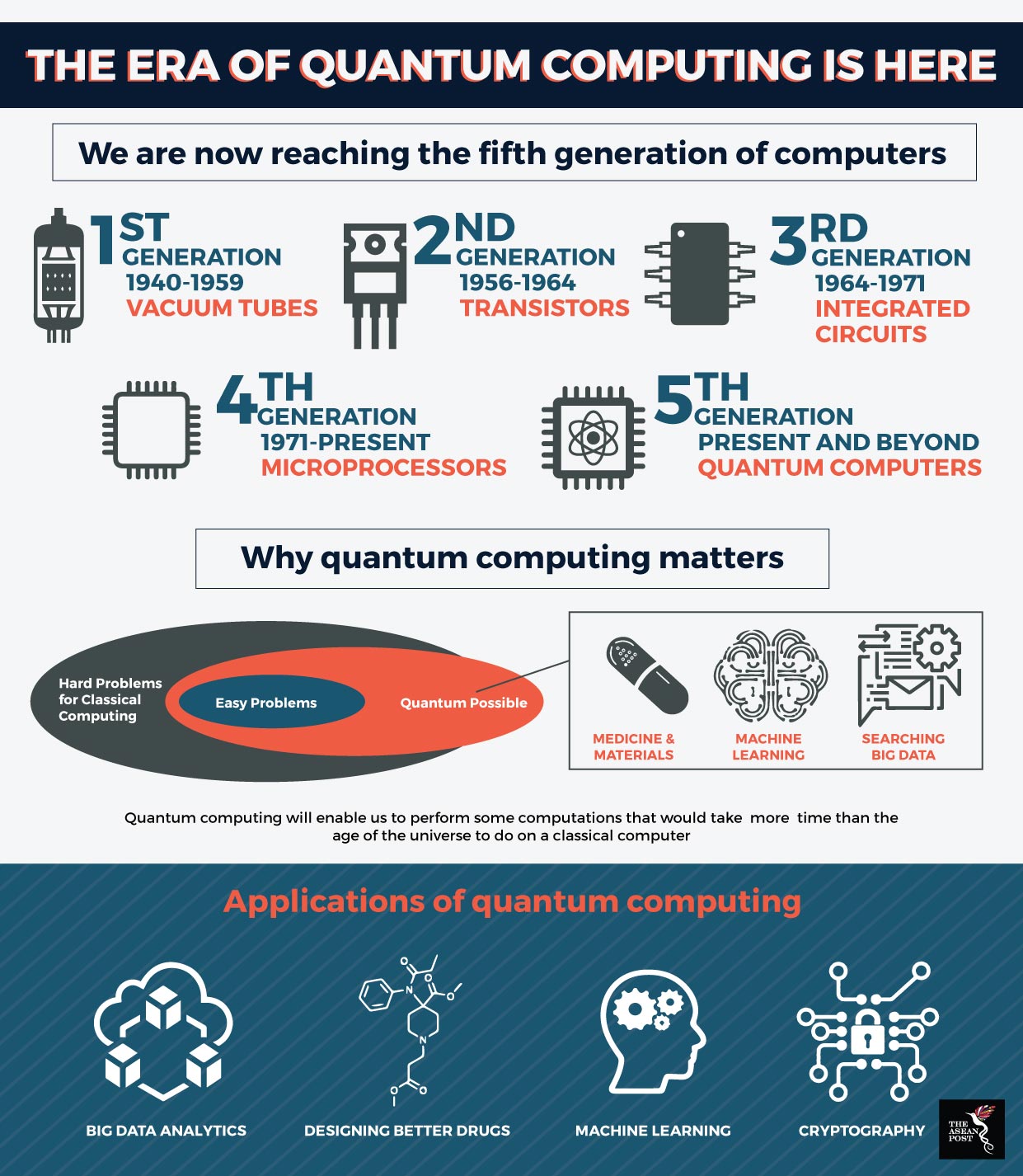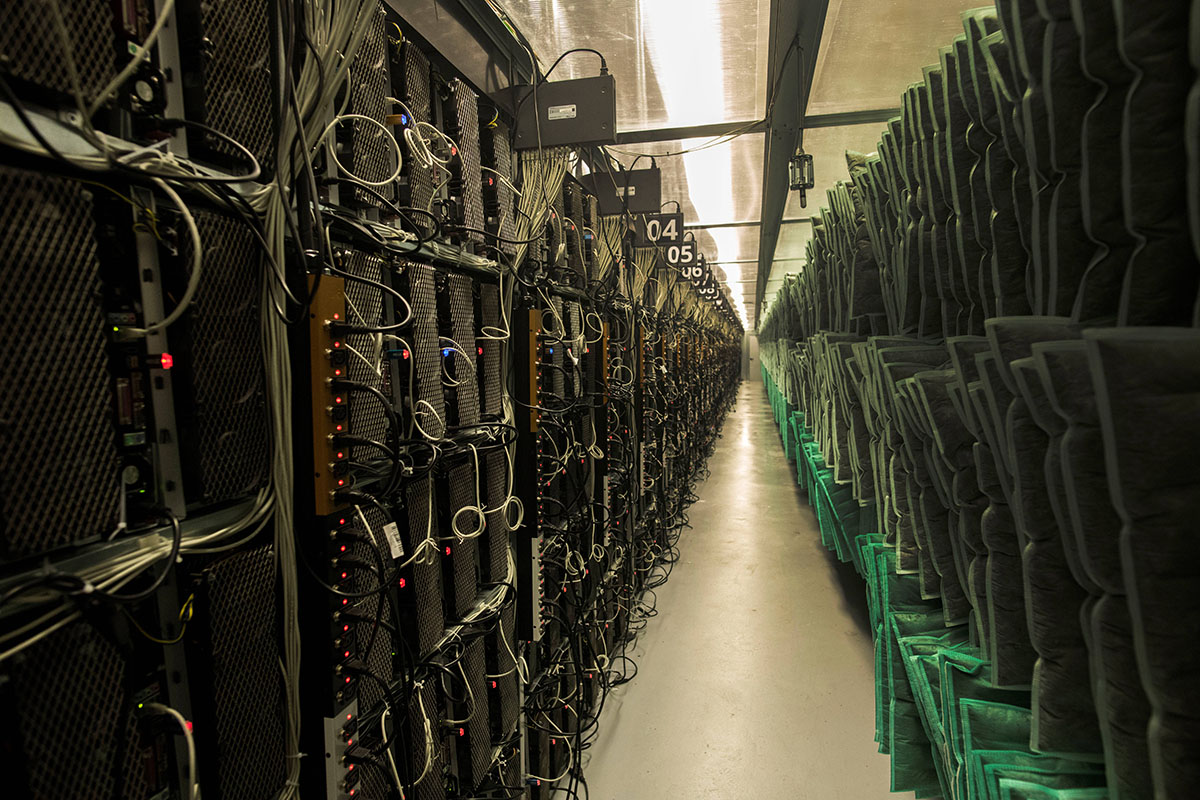The era of traditional microprocessor powered computing that has shaped our lives in many different ways is coming to an end. The future lies in quantum computing technology.
Researchers at New York based multinational technology firm IBM, believe that quantum computers will be a mainstream presence in our lives in five years. According to American financial services provider, Morgan Stanley, the quantum computing market is slated to be worth US$10 billion in the next decade. Another report by Homeland Security Research projects that between 2018 to 2024, quantum computing and related technologies will grow at a compound annual growth rate (CAGR) of 4.6 percent.
What is quantum computing?
Quantum computing utilises several quantum mechanical phenomena which augments the manner in which information is processed and stored as compared to classical computing.
Traditional computers store information in bits where each bit holds the static value of either a 0 or a 1. Opposingly, quantum computers have qubits which are able to store these values in multiple ways.
In the subatomic realm, the laws of physics work differently. Prior to reading their values, the qubits are in an indeterminate state known as superposition. Here, they can take any value - either 1, 0 or even both - at the same time. Each qubit is also able to affect another qubit in what is known as entanglement. Hence, where an ordinary computer would process these values in a sequence – because it can only be one or the other at any one time – quantum computers are able to work simultaneously, making them exponentially faster than traditional computers.

So far, researchers have yet to fully bring this technology out of the lab and into our lives. However, in the past five years, software and hardware capabilities have improved, and with that comes the promise of a quantum future.
Industries that could benefit the most from this technology include healthcare, manufacturing, pharmaceuticals, media and cryptography. Thanks to our huge reliance on big data to improve and enhance services, a faster processing quantum computer would be much more helpful in sifting through the swathes of data and processing it at breakneck speeds previously unattainable using regular computing power. Not only that, but as the exponential development of quantum computers continues, so will mankind’s capabilities for problem solving – in theoretical mathematics and physics – which means that we will one day be able to solve problems previously thought to be unsolvable, thus attaining “quantum supremacy”.
Major players in quantum computing
The race to build the most sophisticated quantum computers is on. Thus far, IBM has managed to successfully build a quantum computer which can handle 50-qubits. Announced at the end of last year, it is by far the largest and most powerful quantum computer to date and some experts suggest that it could outclass many of today’s supercomputers. IBM has also developed another computer which can handle 20-qubits via a cloud computing platform.
Google’s Quantum AI Lab has also achieved success by building Bristlecone, a new quantum processor which is able to process quantum information with a low error rate. Bristlecone will provide a testing ground for research into system error rates and scalability of Google's qubit technology, and feasibility for application in machine learning.
Closer to Southeast Asia, Alibaba has launched an 11-qubit quantum computing cloud service via its Aliyun (“Alibaba Cloud”) subsidiary and the Chinese Academy of Sciences. It is publicly available and according to Aliyun’s chief scientist, Yaoyun Shi, it would enhance the capabilities of researchers wanting to experiment in real world quantum processes.
The Chinese e-commerce giant has also developed the Alibaba Quantum Laboratory (AQL) launched in 2015 along with the Chinese Academy of Sciences. Recently, AQL released a 15-year roadmap detailing ambitious plans to build quantum computing prototypes of 50-100 qubits by 2030.
Quantum computing holds the key for mankind’s future – testing the boundaries of our epistemology and our beliefs of the way the world works. It is a future worth looking forward to and is one worth putting our time and effort into to develop, because it will revolutionise the way we live in the not so distant future.
